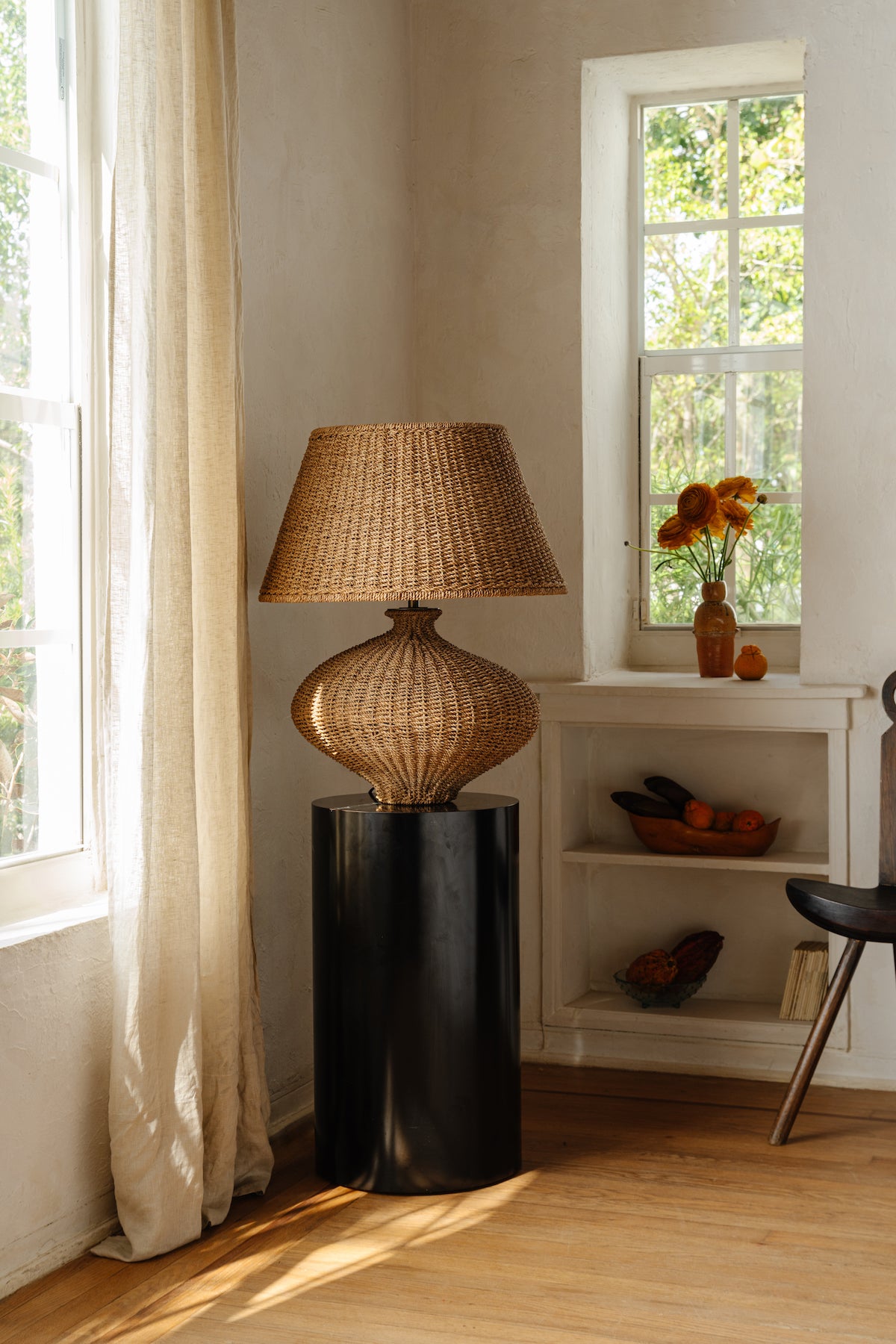This week in design, it seemed to some Facebook users that a Taylor Swift x Le Creuset collab was underway, thanks to a series of video ads that appeared on the platform. But the excitement was short-lived: The video was quickly debunked as one of many celebrity-focused scams created with the use of artificial intelligence. Stay in the know with our weekly roundup of headlines, launches, events, recommended reading and more.
Business News
Less than 16 percent of homes for sale last year were affordable to local median earners—the lowest rate since at least 2013, when real estate brokerage Redfin began tracking prices. As The New York Times reports, the study also broke down racial disparities in homebuying using data from the U.S. Census Bureau’s American Community Survey, finding that a mere 7 percent of homes were affordable for Black households, and 10 percent for Hispanic/Latino ones. The decline aligns with the pandemic boom, as 40 percent of listed homes were affordable in 2019—a rate that fell to 21 percent by 2022. On the bright side, analysts expect housing affordability to improve in the year ahead as mortgage rates level out and home inventory increases.
Florida-based furniture manufacturer Twin Star Home has acquired patio furniture maker Grand Basket, Casual News Now reports. Founded in 1962, Grand Basket specializes in handwoven wicker seating, tables and storage pieces. Following the purchase, the company will maintain its operations in Denver, though the newly combined company will be based in Boca Raton. This is Twin Star’s third acquisition in four years, following the purchase of patio furniture manufacturer and distributor TK Classics in 2020 and outdoor furnishings provider Classic Accessories the following year.
U.K.–based online design magazine Design Week announced that it will cease publication and sunset its website by mid-January, Dezeen reports. According to a statement posted on the site, parent company Centaur Media decided to close the title as it shifts its strategy toward a core audience of marketers with titles like Marketing Week. Launched in 1986, Design Week was founded by writer Jeremy Myerson as the first weekly newsmagazine in the U.K. catering to designers and their clients. It published weekly print editions before going online-only in 2011. The closure follows the recent folding of fellow U.K. design magazine Blueprint, which ended a 37-year run in 2020.
In the face of a tight housing market and low home inventory, Wall Street investors are increasingly building new neighborhoods made up entirely of family homes for rent, The Wall Street Journal reports. While the number of build-to-rent communities remains small—currently 900 in the U.S.—the practice is gaining speed, with the National Association of Home Builders estimating that 10 percent of new housing construction will fall under the category. In preparation for multiple tenants, the homes often have a unique set of design features, including wide hallways and stairs to accommodate multiple move-ins, as well as sturdy countertops and flooring to stand the test of time.
Tracy Kasper, president of the National Association of Realtors, has resigned from her position after receiving a blackmail threat, The Real Deal reports. She informed the trade group’s leadership team that she received “a threat to disclose a past personal, nonfinancial matter unless she compromised her position.” She then reported the incident to law enforcement before deciding “it was best for the organization that she step down,” according to the NAR. Kasper held the role for about five months, serving during a turbulent time for the organization as it faced a federal antitrust lawsuit as well as allegations of sexual harassment lodged against former president Kenny Parcell. Following Kasper’s departure, former Massachusetts Association of Realtors president Kevin Sears, who has been a national committee chair in the past, will take over the role.
The number of companies that have achieved B Corp certification—a status that requires businesses to meet certain environmental, social and governance (ESG) standards—has more than doubled in the last three years, Modern Retail reports. Representing likely the biggest increase in the operation’s 17-year history, the number of B Corps jumped from 3,735 in 2020 to nearly 8,000 at the end of 2023, with 1,800 new additions last year alone. The push toward improving ESG impact could be attributed to several motivating factors: Asset management firm Capital Group found last year that around 89 percent of investors consider ESG in investment decisions, and Deloitte found that one-third of customers have more trust in brands that are certified as ethical or sustainable by a third party.
Following several years of increased natural disasters due to climate change, a growing number of insurance companies are continuing to demand higher premiums to protect against future losses—or pulling coverage in high-risk areas entirely, The Wall Street Journal reports. The shift has spanned the country: In both Illinois and Texas, Farmers Insurance Group increased home-insurance rates by more than 23 percent last year for tens of thousands of policyholders, while in North Carolina, Nationwide Mutual won’t renew 10,525 home insurance policies in hurricane-prone areas. In one of the most drastic cases, State Farm stopped offering new home insurance coverage in all of California—and last month, state regulators approved a 20 percent rate increase. The higher rates are putting a strain on household expenses for many homeowners, some of whom are forgoing coverage when it exceeds their ability to pay.

Launches & Collaborations
Sotheby’s partnered with interior designer Corey Damen Jenkins and fashion designer Thom Browne to curate Visions of America: Art. Luxury. Culture. The exhibition of American craftsmanship will be open to the public from January 12 to 19, with auctions running from January 19 to 29. For the event, Jenkins transformed 1,000 square feet of gallery space into a pied-à-terre rendered in his signature bold classicism and featuring pieces from the sales, which range from fine art and furniture to decorative arts, folk art and manuscripts.
Troy Lighting released a new collection with the help of artist and vintage curator Carmen Nash of Loft and Thought. The Folk and Flora collection spans eight lighting styles, which utilize natural materials like abaca and terra cotta and draw design inspiration from the worlds of some of Nash’s favorite writers and artists, including Zora Neale Hurston and Toni Morrison.
Heimtextil—the world’s largest textile fair, based in Frankfurt, Germany—has announced a new partnership with Milan-based designer Patricia Urquiola and her multidisciplinary design house, Studio Urquiola. Though the collaboration is currently in the research and planning phase, the pair shared that the project will showcase sustainable textiles and interior design products and will debut at Heimtextil in January 2025.
Showhouses
The Kips Bay Decorator Show House Palm Beach announced the lineup of designers and architects who will be reimagining this year’s estate, located in West Palm Beach’s waterfront SoSo neighborhood. The 23-person cohort includes Ariel Okin, DuVäl Reynolds, Sara Story and Nadia Watts, among others. The space will be open to the public for one month beginning February 23, with proceeds to benefit the Kips Bay Boys & Girls Club.
Recommended Reading
In the years leading up to the pandemic, many young couples engaged in the time-honored tradition of purchasing their starter home: a space they expected to eventually leave in favor of a larger house that could accommodate their growing family. Several years later, their families are bigger—but their homes have remained the same size. As Rachel Kurzius writes for The Washington Post, homeowners who locked in low interest rates pre-pandemic (and would be hard-pressed to find a new place in today’s tight market regardless) are instead channeling their funds into space-saving renovations, reconfiguring their existing homes for the next chapter of their lives.
Buyers are also turning their attention to less-desirable spaces in hopes of making a purchase in today’s low-inventory housing market—providing the perfect window for addresses with a dark past to have a second chance at life. As Erika Mailman writes for The Wall Street Journal, homes where a murder or violent crime took place (often referred to as “stigmatized”) can present buyers and sellers alike with a conundrum: In most states, disclose is not mandatory, and mysteriously low prices prompt some potential buyers to dig deeper into a property’s history.





























